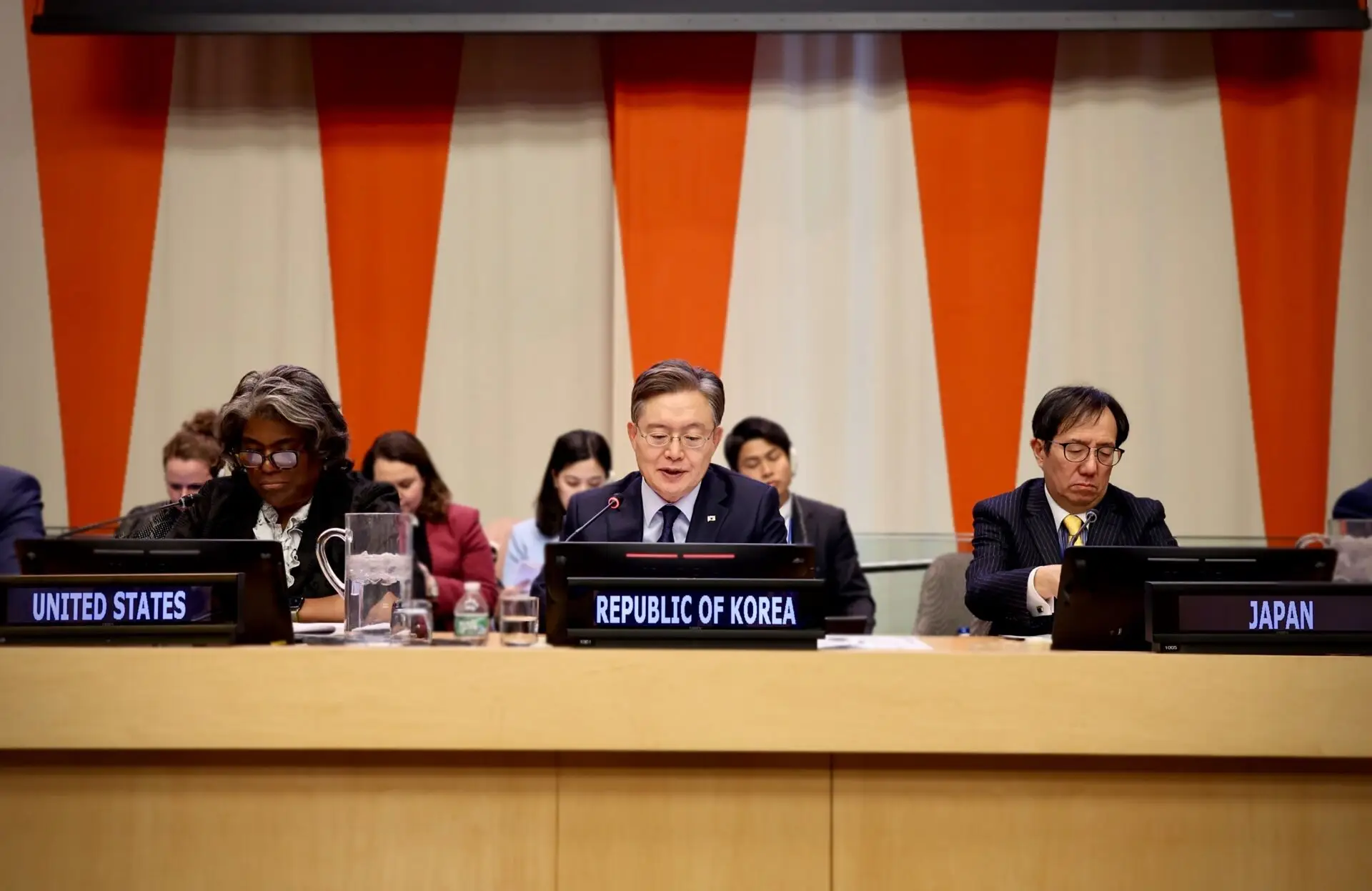Approximately one-third of the United Nations member states announced on Thursday a joint statement emphasizing the seriousness of evolving cyber threats to international security. This marks the first affirmation of its kind in the history of the UN Security Council.
On June 21, South Korea’s foreign ministry revealed that representatives from 63 U.N. member states and the European Union issued a “Joint Statement on the Use of Information and Communications Technology in the Context of International Peace and Security” at the U.N. Security Council headquarters. South Korea’s foreign minister, Cho Tae-yul, delivered the speech as the country began its official month-long presidency term at the U.N. Security Council earlier this month.
In the document, U.N. member states expressed profound concerns about malicious cyber threats, emphasizing their significant impact on global peace and security. The joint statement highlighted the potential consequences for critical infrastructure, noting that these threats transcend borders and affect various industries, including healthcare and space. Additionally, multinational countries voiced apprehension about illicit financial gains from cryptocurrency heists, warning that these funds could potentially finance the development of illicit weapons of mass destruction as well as support terrorist activities.
“We observe an alarming trend where the malicious use of ICTs acts as a threat multiplier, exacerbating existing conflicts and jeopardizing international peace and security,” stated Cho. “The Security Council has a crucial role in addressing cyber threats to fulfill its primary responsibility for maintaining international peace and security.”

Following the release of the joint statement, approximately 70 member states participated in the inaugural on-site U.N. Security Council high-level open debate on cybersecurity. During the debate, South Korea’s foreign minister urged the international community to enhance its proactive engagement against cyber threats, which are increasingly empowered by artificial intelligence technologies. Minister Cho also highlighted the connection between North Korea’s illicit cyber activities and its ongoing efforts to advance its weapons of mass destruction program, referencing a report issued by the U.N. expert panel in March.
The statement was issued against the backdrop of global tensions following the meeting between the leaders of North Korea and Russia in Pyongyang on June 19. They agreed to establish a comprehensive strategic partnership, encompassing military and economic assistance. On June 20, South Korea’s presidential office strongly condemned both direct and indirect support for North Korea, emphasizing that such actions intensify its military capabilities and constitute a violation of U.N. Security Council resolutions.
Meanwhile, on Thursday, the European Union crime agency Europol announced the opening of the South Korean Liaison Bureau at its headquarters in The Hague. This development marks South Korea as the 10th non-European country to collaborate with the EU police force. The South Korean police agency and Europol had previously signed a working arrangement in December 2021 to establish cooperative relations, regarding terrorism, cybercrime, money laundering, and fraud.
Related article: South Korea issues warning on North Korean cyber threats at the UN

South Korea highlighted concerns on Thursday regarding North Korea’s cyber activities, malicious attacks being undertaken to generate funds for the nation’s illicit missile programs. South Korea called on the international community to work together to address the pressing threat.
Hwang Joon-kook, South Korea’s ambassador to the United Nations, highlighted North Korea’s cyber activities as one of three areas of concern regarding malicious cyber behavior that the U.N. Security Council should address. “Illicit cyber activities pose significant challenges to the global non-proliferation framework. A prime example is the malicious cyber activities undertaken by North Korea,” the ambassador emphasized.
Hwang highlighted findings from a U.N. expert report published last March, which disclosed that state-sponsored hacking activities fund 40% of the country’s weapons of mass destruction program. These comments were made during an Arria-formula meeting at the U.N. headquarters in New York, themed “Evolving Cyber Threat Landscape and Its Implications for the Maintenance of International Peace and Security.” South Korea spearheaded this informal cybersecurity event in collaboration with two co-hosts: the United States and Japan. READ MORE


